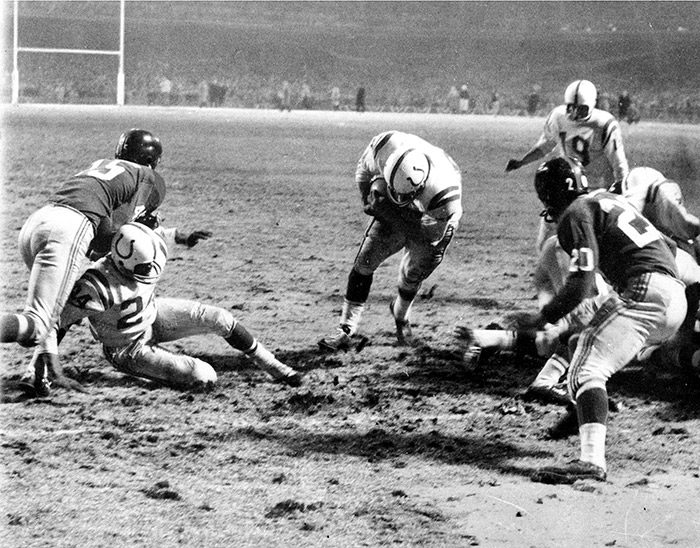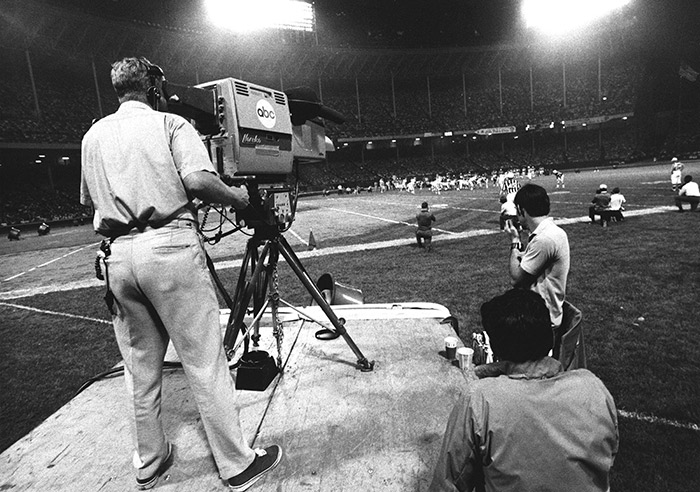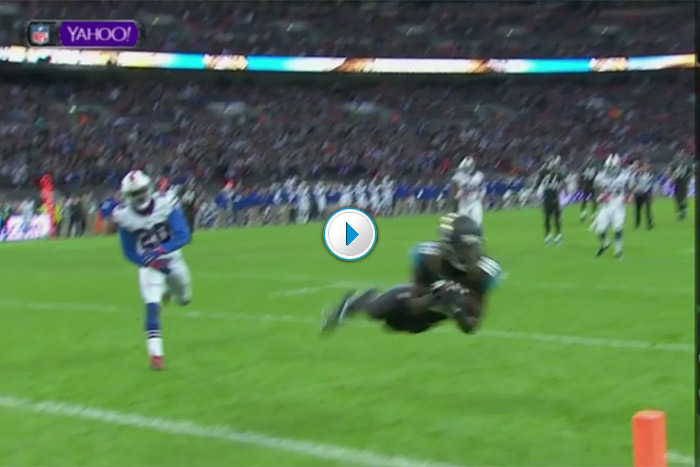Streaming History
10/26/2015
Well, the Bills and the Jags game at Wembley Stadium in London on Sunday was exciting to say the least. Down 27-3, the Bills second-teamers – yes, eight starters and their number two running back were out – managed to take a 31-27 lead with just over five minutes to play. But alas, the Jaguars showed their London mates that in American football, “it ain’t over until the fat lady sings.” And to Londoners that probably makes about as much sense as the pass interference call on Nickell Robey that set up the home team’s winning score. But the outcome and win-loss records aside, it really was an important game. Online streaming is the next step in the evolution of how we’ll consume the game.
Here’s how I see that evolution.
It begins on October 22, 1939, when the Philadelphia Eagles met the football Brooklyn Dodgers in the first televised game in NFL history. On that day 500-or-so New Yorkers who actually owned television sets had a chance to watch the game on NBC’s experimental station, W2XBS. More saw it on televisions in the RCA Pavilion at the World’s Fair in New York where it was scheduled as a special event. It was the beginning of game’s most important relationship, the marriage between football and television.
My number two biggie in TV’s football evolution came in 1951 when the Dumont Network broadcast the NFL Championship Game. It was the first NFL title game broadcast nationally. The game, like the Bills/Jags game, was super exciting. The Rams beat the Browns on a 73-yard TD pass late in the fourth quarter. Fans, who tuned in, like those who streamed the Bills/Jags game, got their money’s worth and were hooked on this idea of nationally televised games.
Third on my list is the 1958 NFL Championship Game. Actually, I should call it 2-b since it’s also a championship game and the television part really didn’t change. It’s just that this nationally televised title game between the Baltimore Colts and the New York Giants was played in media central New York City and went into overtime. Eventually the Colts won the nail-biter 23-17, but more importantly, 45 million viewers tuned in to witness.

Now lots happened between 1958 and my next stop on the history timeline. But for me, the next “big thing” in televised football was ABC’s Monday Night Football. Even though the NFL and CBS experimented with one nationally televised Monday night game in 1966 and 1967 and then two in 1968 and 1969, and then the rival AFL did the same with NBC in 1968 and 1969; it was ABC’s weekly game that changed everything. With a wild three-man booth and halftime highlight films, it was no longer just a football game; it was a prime time extravaganza. For what it’s worth, I contend Monday Night Football also gave birth to the sports bar scene.

Next let’s go back, back, back, back, back, to cable TV and ESPN; pro football year round on a 24-7 network. The all-sports network that debuted on September 7, 1979 was a sports junkie’s dream. As NFL Commissioner Paul Tagliabue once explained, “ESPN was able to take the draft, pregame and highlight shows, and other NFL programming to a new level.” By 1985, ESPN was in the mix of televising NFL games. It introduced us to a regular Sunday Night Football schedule and eventually took over the Monday Night franchise slot.
So what could possibly be next? Ah, yes. The satellite dish! Finally, in 1994 for those who no longer resided in the same region as their beloved home team, the satellite dish and NFL Sunday Ticket made it possible to not only watch their home team, they could watch any game they wanted.
And finally, let’s not forget the 2003 launch of the NFL Network, a cable/satellite network that brings us 24-7 NFL football. Life is good.
So, in conclusion, Bills fans fear not. Just as the world remembers your team as the one that went to four consecutive Super Bowls – not for losing four – they’ll now also be remembered as one of the two teams that played in the first live stream of an NFL game to a global audience on a digital platform. Who really cares who won the Eagles/Dodgers game in 1939 anyhow?
Go back to all blog listings


